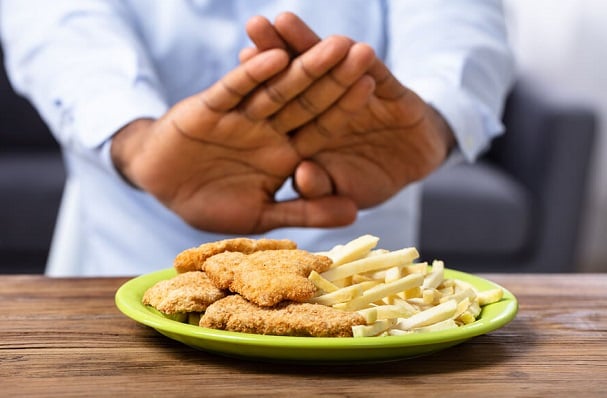A restful night’s sleep is essential to your overall health as proven by research. However, some factors and choices you make during bedtime hours can affect the duration and quality of your sleep.
One of these choices which is often overlooked is the kind of food you consume. Yes, the food you eat before going to bed can affect your sleep.
Without further ado, here are foods you should avoid before bedtime.
- Spicy foods
During bedtime hours, you should avoid spicy foods like pepper soup if you want to have a restful sleep.
According to a study, spicy foods can cause indigestion, heartburn, and acid reflux.
However, these symptoms can get even worse when you lie down to sleep as acid may travel into the esophagus, causing irritation. This can affect your sleep and lead to disturbances.
Another study suggests that intake of spicy meals elevates body temperature, which is associated with poorer sleep quality.
During bedtime hours, steer clear of spicy foods if you experience heartburn after intake.
- High-sugar foods
Consuming foods that contain too much-processed sugar or high glycemic index like white bread, sweets and cookies has a negative effect on health as well as the quality of your sleep.
Several researches have associated the consumption of these foods with insomnia and poor sleep.
A 2019 study on women found that people with a high glycemic diet are at higher risk of insomnia.
A night diet high in sweets, sugar-sweetened beverages, and refined carbs was also associated with poor sleep quality.
You can have difficulty falling asleep when you take these foods during bedtime hours.
- Fatty or fried foods
Foods high in fat or fried like fried chicken have been associated with poor sleep.
Research shows that greater fat intake may negatively affect your sleep pattern. A 2016 study of 26 adults found that a higher intake of fat was associated with lighter, less restorative sleep.
Aside from this, fatty or fried foods also have the potential to cause digestive discomfort or indigestion and this can disrupt your sleep.
So, take greasy foods in moderation when it is bedtime hours or steer clear completely if it is likely for you to experience indigestion.
- Caffeinated foods
Normally, caffeinated foods and drinks are stimulants and are taken by people to stay alert, awake, and energised.
Taking such during bedtime without any intention of staying up at night is like shooting yourself in the leg.
Research shows that consuming coffee, even many hours before bedtime can have a significant disruptive effect on your sleep.
If you want a peaceful, restful night’s sleep, avoid any type of food or drink that contains caffeine.
- Ultra-processed foods
Ultra-processed foods like fast foods are not the best option for you when you want a peaceful sleep.
These foods have been constantly linked to poor sleep quality and short sleep duration, particularly in adolescents.
A study investigating the sleep habits of Brazilian adolescents found that a higher intake of ultra-processed foods is a risk factor for poor sleep quality.
Aside from having better overall health, your sleep will also improve when you cut down on processed foods.
Try taking whole grain foods, foods high in lean protein and nuts instead if you want to improve your sleep duration and quality.
Copyright 2025 TheCable. All rights reserved. This material, and other digital content on this website, may not be reproduced, published, broadcast, rewritten or redistributed in whole or in part without prior express written permission from TheCable.
Follow us on twitter @Thecablestyle

